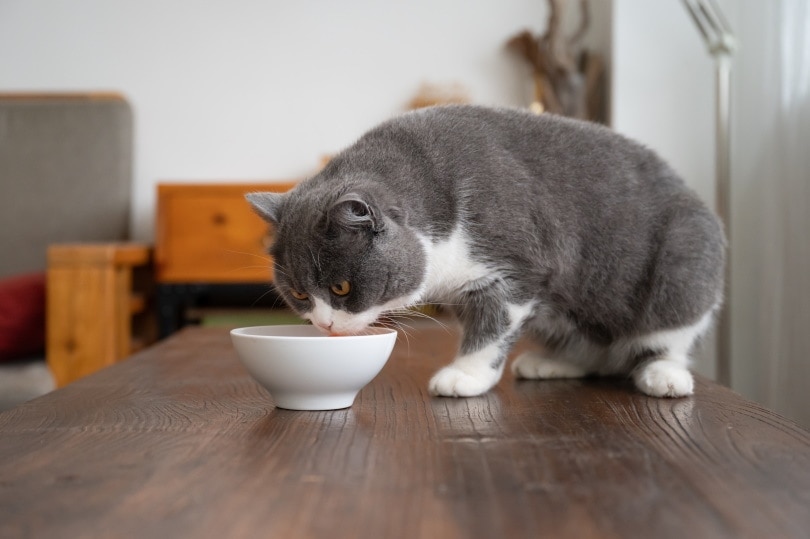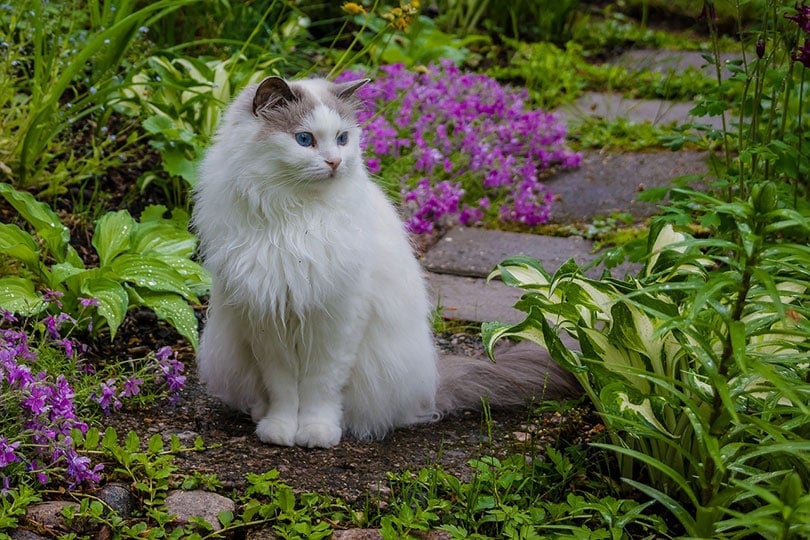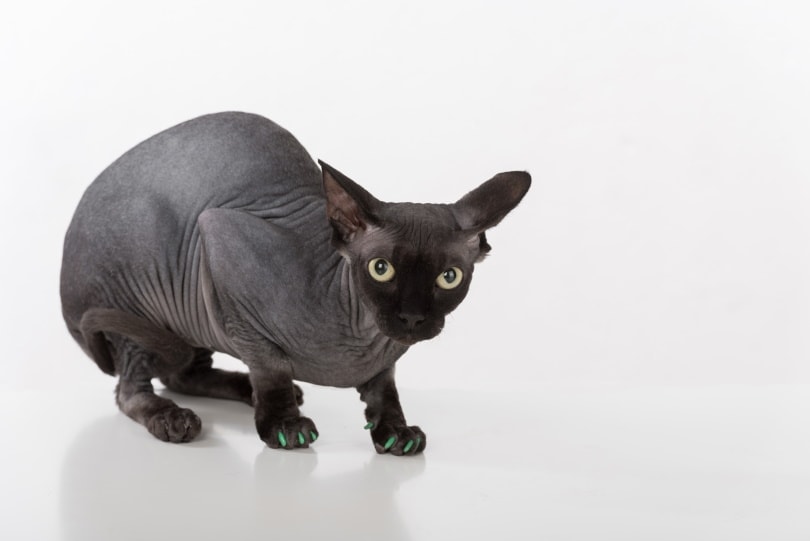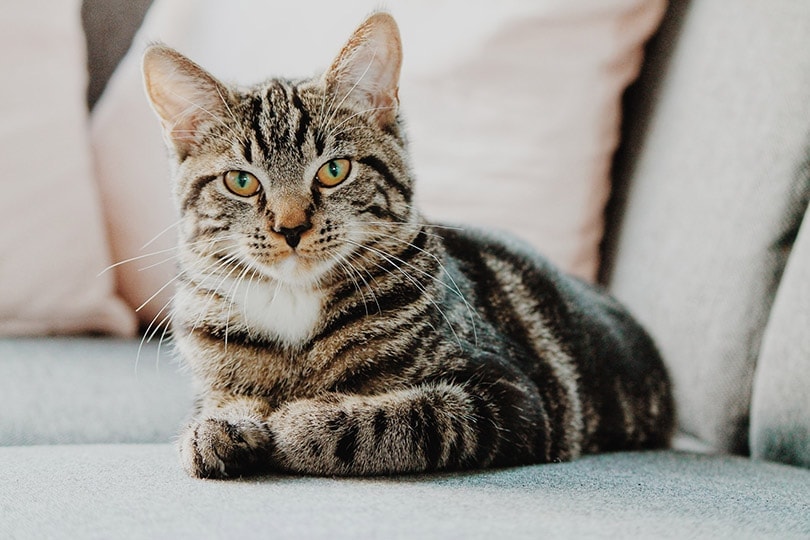If you’ve settled down in your favorite chair with a bowlful of delicious lime sherbet and your cat is watching you with those big eyes, you might be tempted to let your cat have some. So, if you’re here, you must be wondering if it’s safe to give your cat some sherbet.
It’s not dangerous for your cat to have sherbet, but it is not recommended. The ingredients in sherbet aren’t good for your cat, and the icy temperature might cause some discomfort.
We’ll have a closer look at sherbet and especially its ingredients. This way, you’ll know why it’s best not to give any to your cat.
A Cat’s Diet
Cats are obligate carnivores. This means that meat makes up their entire diet and that plants, fruits, and vegetables are not only unnecessary, but cats can’t properly digest them.
Cats hunt and eat their meals at sunrise and sundown in the wild. You might notice your cat being much more active at these times at home.
You can easily fulfill a cat’s diet with commercial cat food, which has the right balance of proteins, minerals, and vitamins. When possible, try to avoid cat food with too many fillers, such as meat by-products, grains, soy, and corn, as they don’t add any actual health benefits for your cat.
This is just a brief snippet into what cats eat, so we’ll now delve into what sherbet is all about.

A Little About Sherbet
So, what exactly is sherbet? The term ‘sherbet’ comes from the Persian word ‘sharbat,’ an iced fruit drink, but it’s also sometimes called sherbert.
In the USA, it’s made with a combination of fruit, sugar, sometimes egg whites, and 1% or 2% milkfat from milk or cream. And, of course, it’s frozen. It comes in many flavors – everything from orange to raspberry to strawberry.
If the milk product is less than 1%, it is considered water ice, and if it’s between 2% and 10%, it’s a frozen dairy dessert. Anything above 10% is ice cream.
Additionally, many of us get sherbet mixed up with sorbet. The main difference is that sorbet doesn’t put any milk product in the dessert.
And to make things even more confusing, the term ‘sherbet’ is used in the UK and other places in Europe to describe a fizzy, sugary powder used to make a sweet drink or dip other sweets into (like lollipops). But we’re only discussing the frozen dessert here.
Make no mistake, sherbet is a dessert and technically does not provide us with any health benefit. It’s better than ice cream or gelato since it has less fat, but a dessert is a dessert.

Cats and Sherbet
Desserts in moderation for us are fine. But desserts of any kind for our pets are never a good idea. They provide absolutely no nutritional value to their diets and are full of ingredients that can cause health problems in our cats.
And besides that, cats don’t have any sweet taste receptors – they can’t taste anything sweet. So, there’s no reason to give your cat dessert.
Fruit
The good news is that while cats don’t really need fruit, most are actually safe for them. However, you shouldn’t give your cat more than one piece of fruit about 1-inch in size every day.
The fruit that isn’t safe for cats are grapes and citrus fruit. Oranges, limes, or lemons can cause serious health conditions, even death.
However, if your cat has diabetes, you should avoid giving your cat any fruit at all.
Sugar
It isn’t a good idea to give your cat sugar. Too much sugar can lead to diabetes, obesity, gum disease, and other dental issues.
While a small amount won’t hurt them, it’s an unnecessary ingredient that won’t benefit cats in any way, and since they don’t taste sweet things, it’s pretty pointless.
Milk
Contrary to popular belief, cats and milk don’t usually mix. Most cats have issues with lactose intolerance, which can lead to vomiting and diarrhea, as well as stomach pain and upset. Just because cats seem to love it and crave it doesn’t mean we should give it to them.
Temperature
And then there’s the freezing temperature of sherbet. While watching videos of cats getting brain freeze when licking ice cream might seem funny, in reality, it’s uncomfortable and even painful for most cats.
Experts aren’t sure if cats are experiencing brain freeze or if it might be the extreme cold hitting their teeth, which can be pretty painful if they have gum disease. Either way, you certainly don’t want to unintentionally (or intentionally) cause your cat any pain or discomfort.

Can Cats Eat Sorbet?
Technically, sorbet is better than sherbet since it doesn’t have any milk products added, but it still has that dreaded and unhealthy sugar. And as we mentioned earlier, if it’s citrus, you need to avoid it at all costs. Again, if your cat sneaks in a few licks, things should be fine, but it shouldn’t be a regular treat.
Cans Cats Eat Ice Cream?
Ice cream is worse than sherbet since it is even higher in milk products. Remember, sherbet is usually 1–2% in milk fats, whereas ice cream is over 10%. And it contains sugar and sometimes other harmful ingredients. It’s well known how toxic chocolate is for dogs, but it’s just as bad if not worse for cats.
So, if your cat wants to lap up a tiny amount of ice cream, make sure there are no hazelnuts, macadamia nuts, artificial sweeteners, or any chocolate. All these ingredients can be toxic for our pets.
Conclusion
If your cat has a couple of licks of your sherbet, chances are, your cat will be just fine. But you shouldn’t go out of your way to give your cat any of this frozen dessert, especially if it contains any harmful ingredients. You don’t want to risk your cat becoming sick or worse. And as you’ve discovered, they don’t have a sweet tooth anyway, so it is essentially taking a pointless risk.
Speak to your vet if you’re at all worried about your cat, particularly if they ingested a large portion of your frozen dessert. They have specific dietary requirements, and therefore, there is no need to provide them with any human food, so keep things like sherbet away from your pets.
Featured Image Credit: Pixabay






